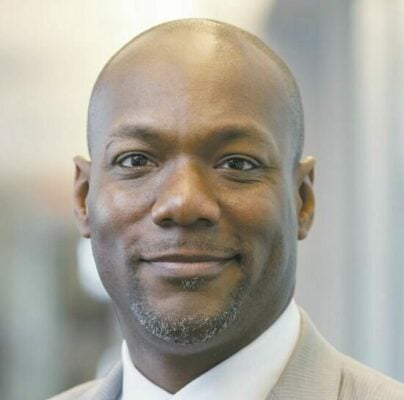
Recently, two of the nation’s most venerable and well-respected newspapers, The Washington Post and The Los Angeles Times, decided not to endorse a candidate in this year’s presidential election.
Those decisions have been largely met with derision and disappointment, primarily because the assumption is that the papers’ owners are concerned about retaliation from Donald Trump should he prevail next week.
This turn of events is surprising given the wealth, power, and notoriety of the papers’ owners. Jeff Bezos, founder of Amazon, bought the Post in 2012. On any given day, Bezos is in the top three of four of the richest people in the world — one of the handful of people for whom the term “centibillionaire” was coined.
Patrick Soon-Shion is a South African and American national who is of Chinese lineage. A medical doctor by training, Soon-Shiong is also a billionaire tech investor who bought the Times and The San Diego Union-Tribune in 2018 via his investment firm. (He sold the latter paper last year.)
In the aftermath of the Post’s decision, it was revealed that executives from the paper had met with Donald Trump shortly after the paper declined to endorse. The implications of such a meeting are chilling, suggesting a preemptive bowing to potential backlash from Trump, who is known for his vindictive strikes against his perceived adversaries. The specter of Trump’s potential retaliation looms large over both papers’ editorial decisions, igniting a debate about the role of media in safeguarding democratic values in the face of opposition.
Indeed, some critics of the controversial decision have used the phrase “anticipatory obedience” to describe these newspapers’ concern that a win by Donald Trump could lead to negative business consequences for their uber-wealthy publishers. It suggests a readiness to conform to the desires of a powerful figure even before such demands are made. Such behavior is perilous in any context, but is profoundly so in journalism, where independence from political influence is (or should be) sacrosanct.
The response from many staff members of both papers has been swift. The Editor-At-Large of the Post resigned in protest, as did several members of the Times’ editorial board. The Post’s well-known cartoonist, Ann Telnas, pictorially challenged her paper’s decision in her own unique way. These actions underscore a deep-seated belief in the foundational principles of journalism — principles that many staff members feel are being compromised in favor of a quieter life under the thumb of power.
It is not merely the act of a newspaper avoiding an endorsement that is at issue here, but the larger implications such behavior has for journalistic integrity and the robustness of public discourse.
Trump’s impact, as suggested, has transcended the immediate political landscape to touch on fundamental questions about freedom of the press and the resilience of democratic institutions against authoritarian shadows. Most importantly, the fact that Bezos and Soon-Shiong believe Trump when he threatens to seek “revenge” against his Nixon-esque list of enemies should be proof that the wannabe dictator does not embrace American values.
The Washington Post and the Los Angeles Times are not just newspapers; they are institutions that have borne the standard of American journalism to the world.
Their abstention (or, perhaps, abdication) from the political endorsement tradition this election cycle raises critical questions about the influence of external pressures on journalistic independence. If Trump can get billionaires to kowtow to him, what hope is there for the rest of us?
How should the public respond?
There have been widespread calls for people to unsubscribe from the newspaper. The idea, of course, is to hurt the paper’s bottom line. Throughout history, boycotts often have been a successful strategy to get a business to change a particular policy. Unfortunately, however, the people who will pay the proverbial price of such boycotts are journalists, not their billionaire overseers.
Can we as the public compartmentalize without sacrificing the moral high ground? Can we support the sound journalism in which these papers are still engaged? Is there a way to strongly demonstrate our opprobrium without damaging those who rely on a bi-weekly or monthly paycheck. I really wish that I knew the answer.
For the last seven years, the Washington Post’s official slogan has been “Democracy Dies in Darkness.” As it turns out, Democracy can be snuffed out in broad daylight.





